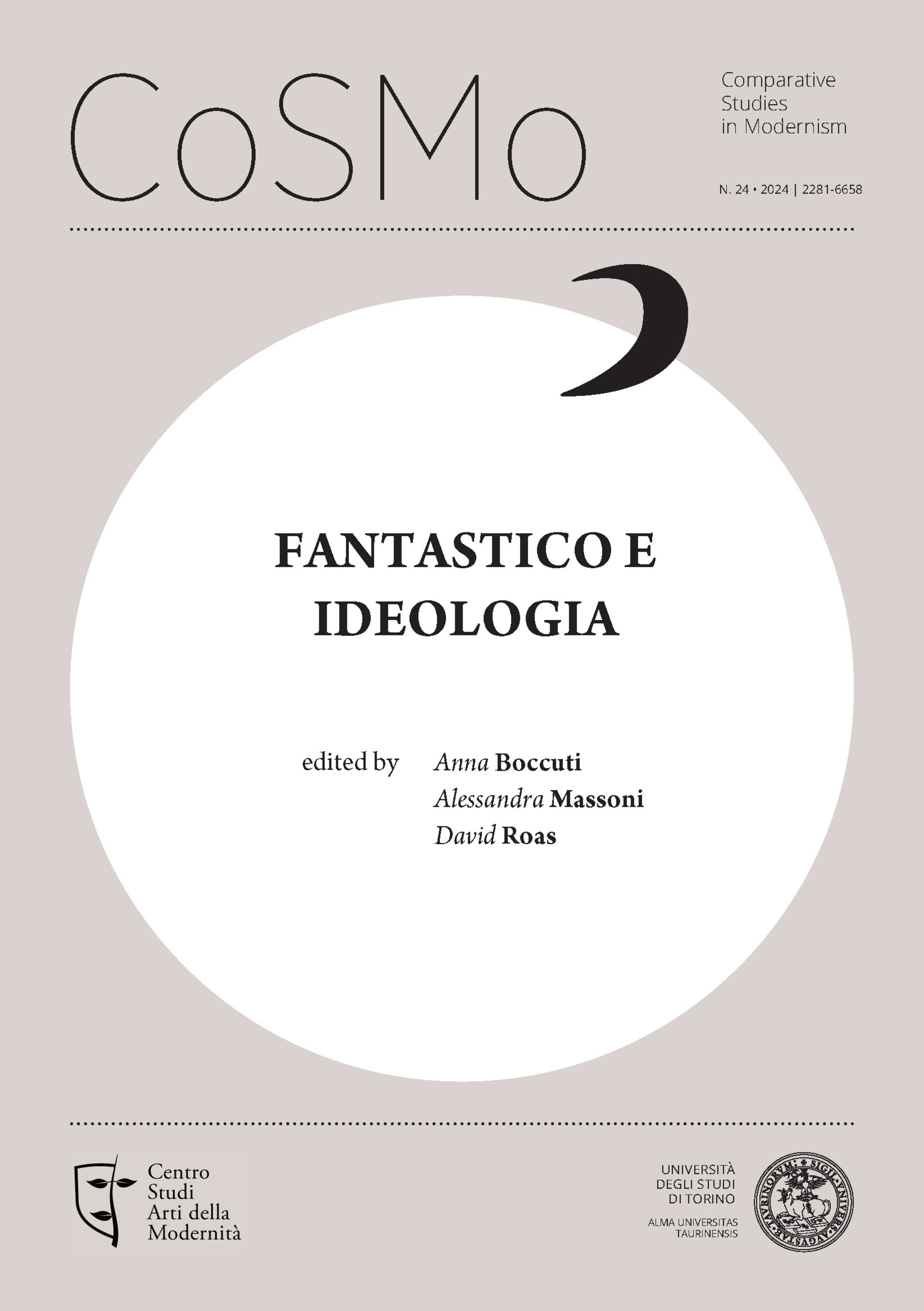Skin Walls
Disease, Political Ideology and Fantasy in Julio Cortázar's “Pesadillas”
DOI:
https://doi.org/10.13135/2281-6658/10686Keywords:
Julio Cortázar, Body, Sickness, Fantastic Literature, IdeologyAbstract
The present article considers the short story “Pesadilla” (Deshoras 1982) by Julio Cortázar, with the purpose of reflecting on the representation of the protagonist’s sick body, and the fantastic dynamic that it reveals, as a discursive device that reflects and criticizes the social perversion that the last Argentine dictatorial regime carries out. The theoretical hypothesis that drives this study is based on the observation of the fertile relation between the representation of the character’s body and the articulation of the fantastic mechanism in the stories of Julio Cortázar, that allow us to think of the body as a function of fantastic logic (Cannavacciuolo 2020). According to this approach, in the story considered, Mecha's body becomes the inter-mediate element (Lugnani 1983, Bhabha 1994) between the two ontological orders of different nature that collide in the story, as well as the point of friction that externalizes the ambiguity of fantastic element. The next step is the analysis of the construction of the protagonist’s corporeal gestures as infralanguage (Galimberti 2013 [1983]); since the young woman’s body becomes an area where a slippery meaning is generated, which allows access to oblique and heterogeneous ontological and epistemological orders and structures and, with them, allude to another story, silenced by verbal language and where lies the unsolvable mystery of where the sinister element comes from.
Downloads
Downloads
Published
Issue
Section
License
Authors keep the copyrights for their work and give the journal the work’s first publication copyright, which is at the same time licensed under a Creative Commons License – Attribution, which in turn allows other parties to share the work with an acknowledgement of the work's authorship and initial publication in this journal.
Content Licence

You are free to copy, distribute and transmit the work, and to adapt the work. You must attribute the work in the manner specified by the author or licensor (but not in any way that suggests that they endorse you or your use of the work).
Metadata licence

CoSMo published articles metadata are dedicated to the public domain by waiving all publisher's rights to the work worldwide under copyright law, including all related and neighboring rights, to the extent allowed by law.
You can copy, modify, distribute and perform the work, even for commercial purposes, all without asking permission.





